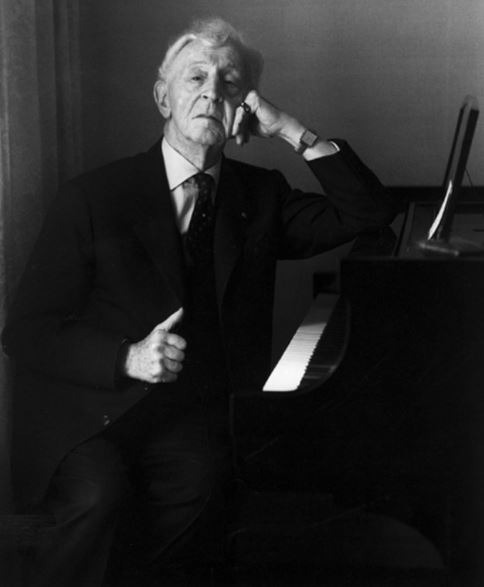Suppose you are an avid classical music listener and a lover of Frédéric Chopin’s piano works. In that case, you’ve likely heard of Arthur Rubinstein and enjoyed listening to his dazzling Chopin interpretations.
You may have also heard of a memorial dedicated to the virtuoso pianist here in Israel. The Arthur Rubinstein Memorial is located southwest of Jerusalem. Rubinstein’s cremated remains are laid there, so it is sort of a shrine among his fans and classical music lovers.
Arthur Rubinstein’s life, career, and legacy
Arthur Rubinstein (1887 – 1982) is one of the greatest classical music pianists of the 20th century. He enjoyed a long career spanning over eight decades. Although Rubinstein played several works by various composers, he is widely regarded as one of the greatest Chopin interpreters of all time. Chopin was Rubinstein’s specialty, and his critics and admirers felt that Rubinstein was a “Chopinist” without peer when it came to this particular department. Except for the études, Rubinstein recorded most of Chopin’s music in every genre.
Like Chopin, Rubinstein was Polish. He was the 20th-century embodiment of Chopin’s music, interpreting his compatriot’s compositions with both energy and vigor, but at the same time, with complete elegance in finesse in every note he played. Although he was mainly known as a recitalist and concerto soloist, Rubinstein was also regarded as an outstanding chamber musician.
Rubinstein was born in Łódź, Poland (which was then part of the Russian empire) in 1887 to a Jewish family. He became a naturalized American citizen in 1946. He died in Geneva, Switzerland, in 1982, and his remains now lie in Aminadav Forest.
Rubinstein was a patriotic Pole – it is evident that he channeled his Polish pride and identity through performing Chopin’s music to audiences around the world. However, he was also proud of his Jewish roots (despite his agnosticism). So, it’s not a big surprise that Rubinstein was a great friend of Israel, which he visited several times for concerts and holidays with his family. He performed with the Israel Philharmonic Orchestra, played recitals, and conducted master classes for aspiring classical music pianists in Israel.
In 1974, the Arthur Rubinstein International Piano Master Competition was conceived in the spirit of the virtuoso pianist and was championed by Rubinstein himself. This prestigious competition has launched the careers of several stars such as Emanuel Ax (the inaugural first-prize winner), Daniil Trifonov, Szymon Nehring, Janina Fialkowska, Khatia Buniatishvili, and Seong-Jin Cho.
Visiting the Arthur Rubinstein Memorial
Every classical music fan visiting Israel may want to visit the Arthur Rubinstein Memorial to pay respects to the legendary pianist.
The Arthur Rubinstein Memorial was established in 1984 through the initiative of the Jerusalem Foundation and its collaboration with the Jewish National Fund. It is located on Mount Ora at the edge of Aminadav Forest, not too far from the Kennedy Memorial (Yad Kennedy). The memorial is also known as the Arthur Rubinstein Panorama as it overlooks the hills and forests of Jerusalem.
The Arthur Rubinstein Memorial was designed by landscape architect Joseph Segall. It includes a sculpture, “Tribute to Arthur Rubinstein,” consisting of white marble pillars arranged at various angles jutting out the mountain’s side ridge, resembling jumbled piano keys. Artist Israel Hadany created this interesting-looking memorial sculpture.
The memorial’s observation point houses Rubinstein’s cremated remains, as well as a memorial plaque.
In his will, the pianist requested that his ashes be scattered in the forests of Jerusalem. However, Jewish law does not permit cremation. This limitation prevented full compliance with his instructions, so they were kept only in part. It was decided that Rubinstein’s ashes be interred in the Aminadav Forest, which the pianist well knew and loved.
As the memorial is located on top of the mountain, it offers visitors breathtaking views of the hills and forests of Jerusalem while providing much-needed peace, quiet, and a spiritual atmosphere.
Going to the Arthur Rubinstein Memorial takes about a couple of hours if you’re coming from Jerusalem city proper. Take the highway to the Hadassah Medical Center in Ein Kerem, then follow the road to the Kennedy Memorial. On your right, you can see a parking lot and sign that leads to the east, only a few steps away from the Arthur Rubinstein Memorial.
